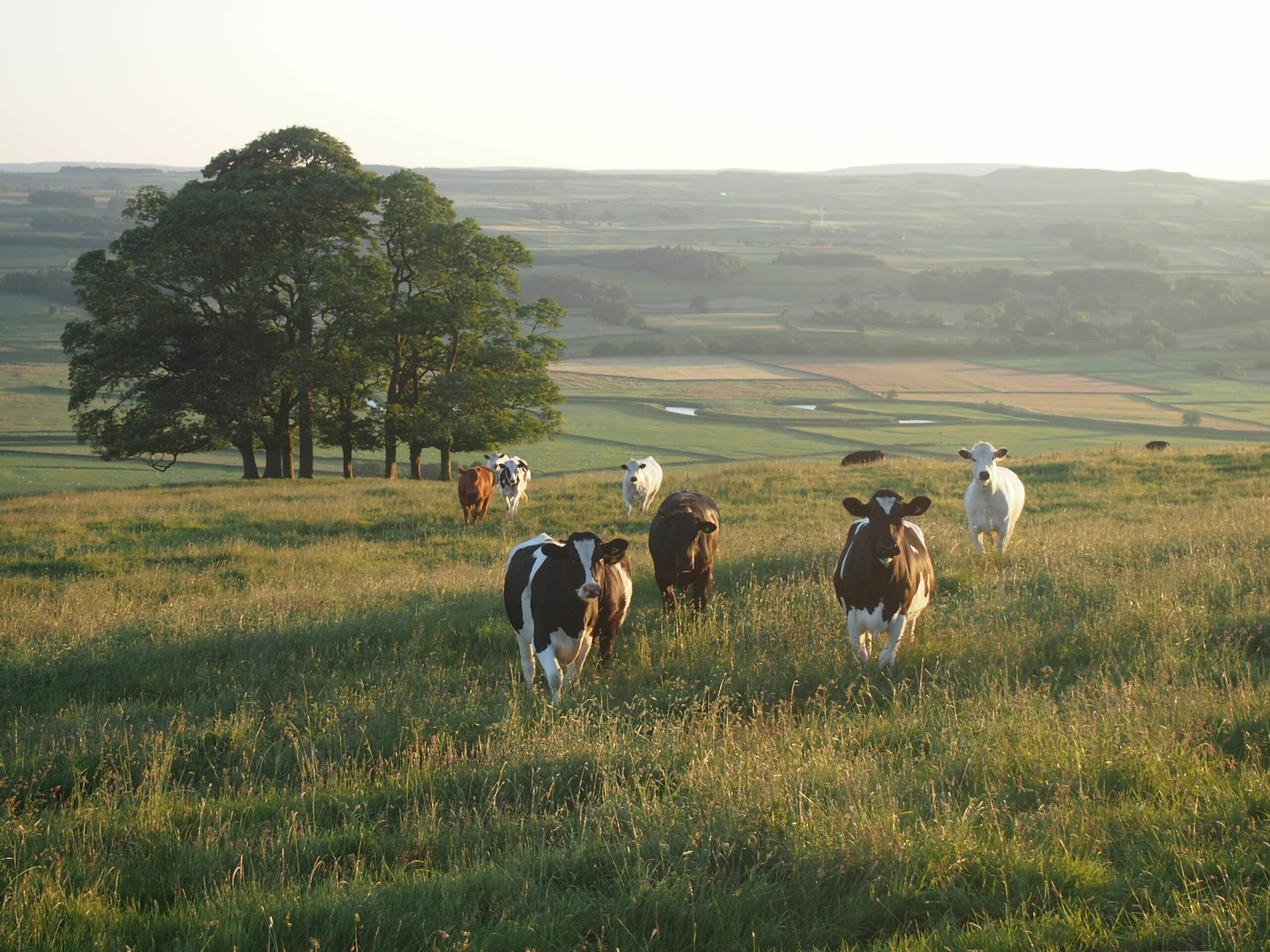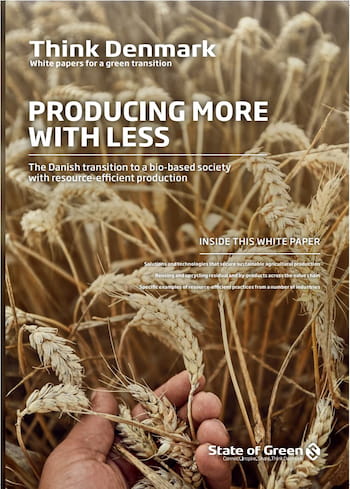Download our publication from producing more with less
This article is part of our publication ‘Producing More with Less’
Download nowPerspective
Bioenergy
Bio-based circular solutions


Increasing the local supply of high-quality protein feed for dairy cows can replace imported feed and create environmental benefits. The BioValue project exemplifies how collaboration can drive sustainability in Danish agriculture.
Arla Foods has engaged in the BioValue project with the objective of improving local supplies of high quality protein feed for dairy cows. There is a potential to provide both valuable roughage and green proteins that can be used to replace imported feeds such as soybean meal.
The BioValue project is part of a research and innovation platform that aims to develop the entire biomass value chain with 15 public and private collaborating partners. In this specific project, technologies are developed to separate biomass into components that are either used directly (e.g. proteins) or that can be decomposed into building blocks (e.g. sugar molecules) with subsequent conversion into new products. The project has developed a method to extract green proteins of different qualities derived from locally grown crops such as grass, clover and Lucerne. The growing conditions for these crops are good in Denmark, the protein delivery per hectare is substantial and they are also beneficial from an environmental perspective. Diversifying crop rotations by using more grass and clover can improve organic content and reduce nutrient losses.

This article is part of our publication ‘Producing More with Less’
Download nowFeed quality is essential in dairy production to secure high yielding and healthy cows. The nutritional qualities of the different fractions of feed in the BioValue project have been assessed and the palatability of the feed seems to be pleasing, which is a critical factor in ensuring the dairy cows consume a high level of feed. The results are promising with regard to maintaining and increasing milk yield when replacing other feed sources with the green protein feeds.
The multiple benefits of locally produced green proteins assist Arla Foods in delivering on the company’s sustainable dairy farming strategy, with healthy cows, high resource efficiency, and low negative environmental and climate impacts. Being able to demonstrate a high sustainability performance forms part of our competitive advantages and allows us to gain the trust of customers and consumers both in Denmark and abroad.
Headed up by Aarhus University, the project is scaling up to further assess performance. The pilot plant has increased capacity as well as improved efficiency, which are important qualities to deliver sufficient volumes for the market at competitive prices. To Arla Foods, the broad partnership with
two universities, Agro Business Park and Region Midt and three other large Danish agribusinesses, where Aarhus University is in the driver’s seat adds collaborative value, strength and credibility. This project is one of the many solutions needed in the transition to a bio-based society.
publications
Resource efficient production
+15